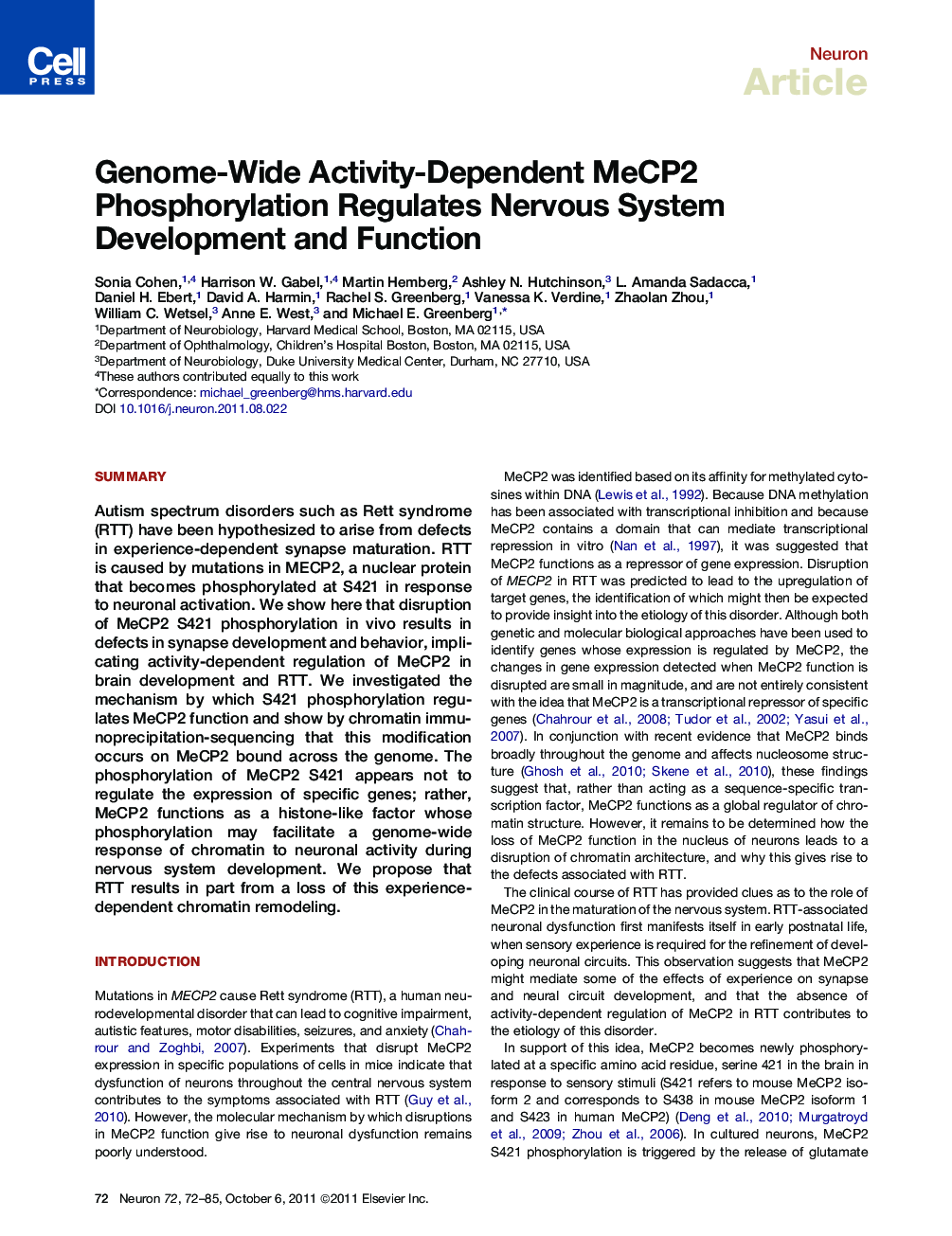| Article ID | Journal | Published Year | Pages | File Type |
|---|---|---|---|---|
| 4321625 | Neuron | 2011 | 14 Pages |
SummaryAutism spectrum disorders such as Rett syndrome (RTT) have been hypothesized to arise from defects in experience-dependent synapse maturation. RTT is caused by mutations in MECP2, a nuclear protein that becomes phosphorylated at S421 in response to neuronal activation. We show here that disruption of MeCP2 S421 phosphorylation in vivo results in defects in synapse development and behavior, implicating activity-dependent regulation of MeCP2 in brain development and RTT. We investigated the mechanism by which S421 phosphorylation regulates MeCP2 function and show by chromatin immunoprecipitation-sequencing that this modification occurs on MeCP2 bound across the genome. The phosphorylation of MeCP2 S421 appears not to regulate the expression of specific genes; rather, MeCP2 functions as a histone-like factor whose phosphorylation may facilitate a genome-wide response of chromatin to neuronal activity during nervous system development. We propose that RTT results in part from a loss of this experience-dependent chromatin remodeling.
► Loss of activity-dependent MeCP2 phospho-S421 in vivo alters synaptic development ► MeCP2 S421A knockin mice display abnormal behavioral responses to novelty ► MeCP2 binding across the neuronal genome is not detectably altered by stimulation ► Activity-dependent pS421 MeCP2 occurs genome-wide suggesting it has a global function
